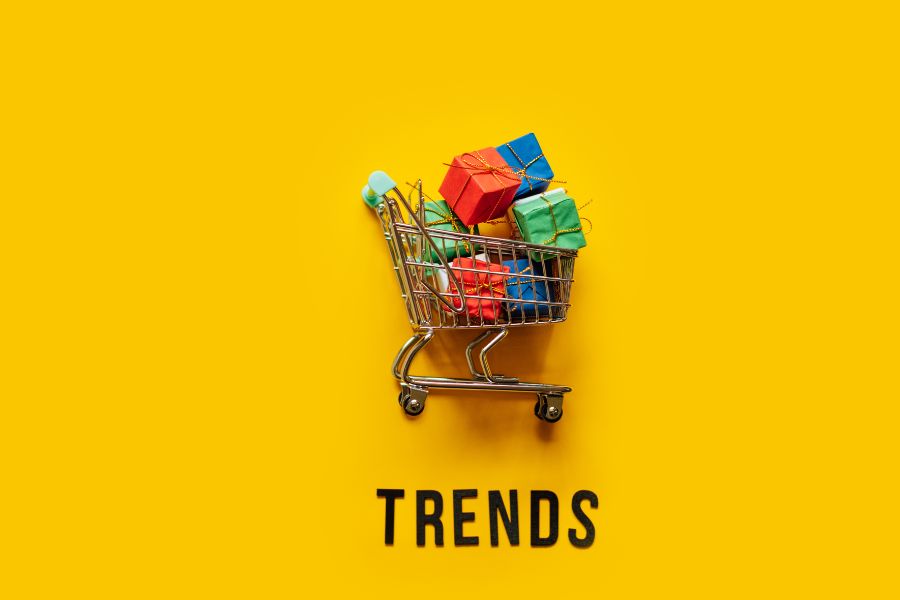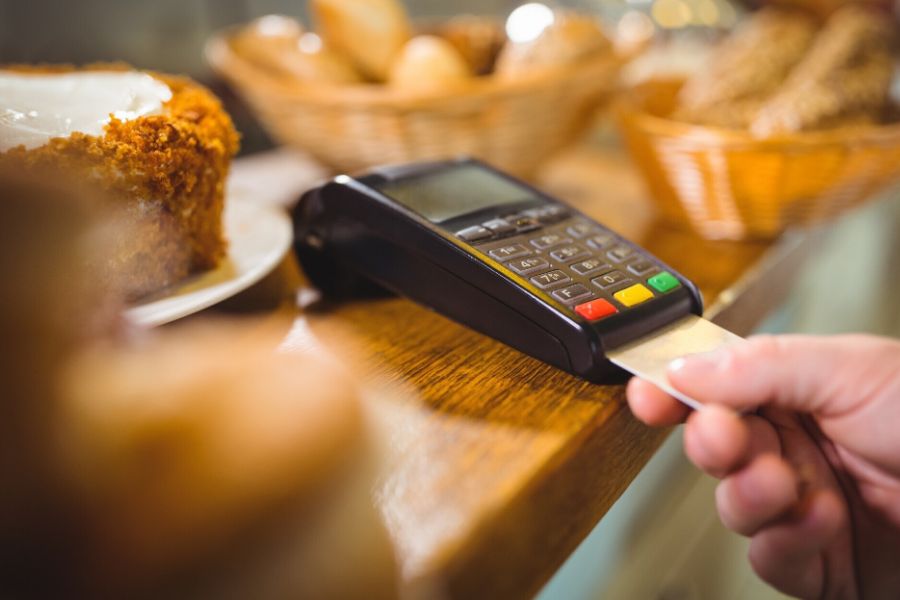Selling online often lacks face-to-face interaction with customers, and for shoppers, the physical store experience is something they miss. While online shopping offers convenience, the in-person shopping experience has its charm. Setting up a pop up shop can bring those missing elements to your eCommerce business, offering a unique way to connect with customers. Before hosting a pop up event, there are important factors to consider to ensure it’s worth the effort. This blog will cover pop up shop basics, creative ideas, examples, and a step-by-step guide to success.
Highlights
- Consider factors like your target audience, budget, and short-term goals when deciding if a pop up store aligns with your brand strategy.
- Successful holiday pop ups should focus on creating festive, engaging experiences with limited-time offers and seasonal themes to attract shoppers.
- When setting up a pop up, think about location, inventory management, staffing, and how you’ll promote the event to drive traffic and sales.
What is A Pop Up Shop?
A pop up shop is a temporary retail space where customers can interact with your brand and experience your products firsthand. These setups can connect with your eCommerce platform, allowing smooth transactions. Depending on your budget, you can either rent a commercial space for a few days or months or opt for a more flexible location, such as an open-air market where multiple vendors sell their products.
Why consider setting up a pop up store?
Setting up a pop up shop can be a powerful way to engage consumers. In 2019, more than half of U.S. survey respondents visited pop up stores seeking unique products and experiences not found in traditional retail.
These temporary stores also attract shoppers curious about new offerings or motivated to support local and independent businesses. A pop up store creates a sense of exclusivity, drawing in customers eager to discover something fresh while allowing brands to connect with their audience in a dynamic, personal way.
Below are some advantages of pop up store:
- Build personal connections: Meeting customers face-to-face gives you the chance to engage directly, fostering stronger relationships and building a loyal customer base.
- Receive real-time feedback: In-person interactions provide immediate insights into customer preferences and suggestions, helping refine your products and brand.
- Increase brand credibility: Selling in person allows customers to connect with the people behind the brand, enhancing trust and authenticity.
- Create marketing content: Capture behind-the-scenes moments from your pop up event for your website and gather user-generated content with customer permission to further promote your brand.
Is Setting Up Pop Up Shop Right for You?
Before setting up a pop up, take a moment to evaluate if this strategy aligns with your brand’s goals.
A pop up isn’t the best fit for every business. Investing time and money into this strategy requires careful consideration. Without a clear potential for return, it can lead to disappointment.
Consider going forward with a pop up if the following apply to you:
- Established Brand Presence: Your brand is recognizable, and you’ve already built a level of trust with your audience.
- Strong Customer Base: You have a loyal following, either online or locally, that you can count on to visit your physical location.
- Sufficient Budget: Your financial plan covers essential expenses, such as space rental, staffing, inventory, and marketing, without stretching your resources too thin.
- Testing Brick-and-Mortar: You’re curious about entering the physical retail space but want to experiment on a smaller scale before making a larger commitment.
- Event-Driven Strategy: If your brand thrives on limited-time offers or exclusive product drops, a pop up can create urgency and excitement that drive engagement.
Got all of them checked? Then let’s explore some ideas for your pop up shop.
8 Best Pop Up Shop Ideas for This Holiday
A successful holiday pop up store should capture the festive spirit, offer unique experiences, and create a sense of urgency that encourages immediate purchases.
Design a Special Theme
First impressions matter, especially during the holidays when competition is fierce. One effective way to grab attention is by designing a pop up store with a unique theme that ties into both your brand and the holiday spirit. For instance, if your brand emphasizes sustainability, you might transform the space with natural elements, recycled materials, and eco-friendly decor.
A well-chosen theme can set your pop up apart. For example, a brand like Lush often uses ethically sourced decor to align with their eco-conscious identity. Themes that evoke warmth, nostalgia, or even a modern twist on the holidays can make your pop up more appealing and on-brand.
Provide an Exclusive Preview
If you are about to launch a new product or collection, use your pop up shop as a platform to showcase it before it becomes available elsewhere. This can generate excitement and create a sense of exclusivity. Attendees get to see and experience new items firsthand, which can help build anticipation and loyalty. Nike has successfully used pop up stores to launch limited-edition sneakers, giving fans early access to exclusive designs.
Moreover, take this opportunity to gather feedback from your visitors. Their input on aspects such as product design and pricing can be valuable for final adjustments before the official release.
Personalize the Experience
Customers love feeling like they’re part of the process. Add a customization station where shoppers can personalize their purchases, such as engraving names or selecting specific features. This makes the shopping experience more engaging and personal.
As a result, customers are more likely to spend time in your shop. The longer they stay, the higher the chances they’ll make a purchase. Personalization also gives them a reason to talk about their experience, potentially increasing word-of-mouth marketing.
Host an Art-Centric Event
Adding an artistic element can help your pop up attract a broader audience. Collaborate with local artists to showcase their work or offer live demonstrations. This creates a cultural experience that can draw in art enthusiasts and casual shoppers alike.
Furthermore, you could host workshops where visitors can participate in creating something themselves. For example, Levi’s pop up stores often feature denim customization, where customers can add patches or embroidery to their jeans. This interactive element not only makes the shopping experience more engaging but also encourages customers to spend more time in your shop.
Connect the Event to a Charitable Cause
Link your pop up shop to a charitable initiative to create a positive impact. Use the event to raise awareness for a cause or support a charity. For example, Kotex’s “The Period Projects” pop up aimed to break the stigma around feminine hygiene while providing a fun experience with custom merchandise, music, and treats.
You could take a similar approach by donating a percentage of your sales to a charity or hosting a donation drive at the event. This not only helps the community but also appeals to shoppers who value social responsibility. During the holidays, many customers are looking for opportunities to give back, and your brand can be part of that.
Run an Exciting Contest
Contests are an excellent way to generate buzz and attract visitors to your pop up. You can run a simple in-store contest where customers can win prizes or discounts. Alternatively, you could use social media to promote a contest before the event, with winners collecting their prizes at the pop up.
Glossier has run Instagram contests to boost engagement and drive traffic to their pop up stores. In addition to creating excitement, contests can help you collect customer information (with their consent), which is useful for future marketing efforts.
Feature Live Demonstrations
If your product benefits from being seen in action, live demonstrations can be a great way to engage customers. Set up a demo station where visitors can watch how your product works. This approach is particularly effective for tech gadgets, kitchenware, or beauty products.
Dyson frequently uses pop up stores to conduct live demonstrations of their hair styling tools and vacuums. Seeing the product in action helps customers understand its value, making them more likely to purchase. You can also record these demonstrations and share them on social media, expanding your pop up’s reach beyond the physical location.
Give Free Samples with Purchases
Consider a promotion where customers receive a free sample with their purchase. This approach works well for products like food, beauty items, and beverages, allowing customers to try before committing to additional purchases. For example, beauty brands like Sephora often include free samples during pop up events to entice shoppers to try new products.
Free samples not only increase the likelihood of a sale but also create a positive experience that customers are likely to remember. Pairing samples with purchases or handing them out to visitors can boost customer satisfaction and drive additional sales.
These ideas can help create a vibrant and engaging pop up store that resonates with your audience and drives excitement and sales.
How to Have a Successful Pop Up Shop?
Plan Your Budget, Goals & Strategy
Before launching a pop up store, focus on laying the groundwork for a successful event. Begin by asking yourself key questions:
- How long will the pop up shop stay open?
- What is the total budget for the event?
- What specific goals are you aiming to achieve with this pop up?
- What primary strategy will help you meet those goals?
The strategy will depend heavily on the goals you set. For instance, if your brand is new and your main objective is raising awareness, then a strategy focused on exposure—such as handing out branded merchandise or free samples—might be ideal.
When budgeting, consider all the aspects of the event. Your budget should account for:
- Rent for the property, including deposits
- Costs related to property upkeep (e.g., cleaning services)
- Utility bills
- Staffing (if necessary)
- Furniture or décor to design the space
- Marketing expenses
- Costs related to logistics
- Legal fees for contracts or insurance
- Payment systems or devices
You may wonder how much a pop up typically costs to set up. While costs will vary depending on duration, location, and staffing, recent data from CapitalOne Shopping highlights the general investment range:
- 44% of pop up shops were launched with less than $5,000.
- 17% required an investment between $5,000 and $10,000.
- 20% spent between $10,000 and $25,000.
- 19% surpassed the $25,000 mark.

Choose the Right Location
Picking the right location plays a key role in the success of your pop up store. Consider these strategies when deciding on a venue:
- Conduct research to identify where your target customers are likely to be.
- Ask your existing customers directly about the most convenient places for them.
- Speak with property owners to determine which spaces best suit your business.
After shortlisting a few locations, investigate their suitability. Ensure the area is free from direct competition, and carefully review rent costs to confirm that the location fits within your budget. It’s also vital to thoroughly examine the lease agreement, paying close attention to liability clauses and insurance requirements.
A helpful tip for those working with a limited budget is to consider partnering with an existing brick-and-mortar store. Sharing space with a business that targets a similar audience can be a cost-effective way for both brands to gain exposure.
Create a Pricing and Discount Strategy
When deciding on your pricing, it’s important to balance profitability with customer appeal. While making a profit is key, drawing people in with appealing deals can make your shop more successful. Consider creative alternatives to heavy discounts, like offering a small branded gift item. This can entice shoppers while keeping your profit margins intact.
Prepare for Shop Design & Decoration
Your pop up store should reflect your brand as thoughtfully as your online store does. Here are some key elements to focus on:
- The overall setup must align with your brand’s identity.
- If possible, create branded merchandise to sell or give away.
- Display a QR code to direct visitors to your social media pages, encouraging them to engage further with your brand.
- Incorporate digital elements like signage and posters to create a dynamic environment.
- Invest in affordable yet stylish furniture. For example, clothing brands should include mirrors for customers to try on products.
- A tip: Consider psychological elements that influence buying behavior. Placing eye-catching items at the front can spark impulse purchases, much like in traditional retail spaces.
Manage Payment Options
Offering flexible payment options is key to providing a smooth experience at your pop up store. With more customers opting for cashless transactions, it’s essential to accommodate their preferences.
- Cashless and Card Payments: Equip your shop to accept major credit/debit cards and mobile wallets like Apple Pay and Google Pay. A reliable POS system that supports both chip and contactless payments will streamline the checkout process.
- Integration with Online Platforms: If you’re using an eCommerce platform, their POS system can sync in-person and online sales, allowing easy inventory management and sales tracking across both channels. This setup ensures a seamless operation between your pop up and online store.
Start Marketing for Your Pop Up Event
Begin promoting your event at least two to three weeks ahead of time. Here are some ideas to generate excitement:
- Social media: Announce the event dates and post regularly to build anticipation.
- Giveaway: Organize a contest with the giveaway prize distribution happening at your pop up location.
- Influencer marketing: Collaborate with influencers who can drive traffic to your shop.
- Email marketing: Send event details to your email subscribers, keeping them in the loop.
- Paid ads: Advertise on platforms such as Facebook, Google, Instagram, and TikTok to reach a wider audience.
- Exclusive discounts: Promote special offers across all your campaigns. Consider giving existing customers referral discounts to bring friends to the event.
How ConnectPOS Helps in Setting Up a Pop Up Shop
ConnectPOS offers key features that make running a pop up shop simpler and more efficient:
- Real-Time Data Sync: The system keeps your inventory, sales, and customer information updated instantly across both online and physical channels, preventing issues like running out of stock or overselling items.
- Omnichannel Integration: It connects your online store with the pop up, allowing customers to order online and pick up at your temporary location, or vice versa, offering a fluid shopping experience.
- Variety of Payment Methods: ConnectPOS supports a wide range of payment options, from cards to mobile payments, making it easy for customers to pay in their preferred way.
- Mobile POS: ConnectPOS supports mobility, making it easy for your team to assist customers anywhere in the pop up store. The mobile system allows transactions to be processed on the spot, improving customer experience and speeding up sales.
- Custom Receipts and Offers: You can personalize receipts to reflect your brand and promotions, making the customer experience more memorable and professional.
- Offline Mode: Run your pop up worry-free, even without a stable internet connection.
- Report and Analytics: Comprehensive reporting helps track sales performance, customer behavior, and inventory levels in real time. This feature enables smarter decisions and adjustments during the pop up event.
These features make ConnectPOS an effective tool for managing all aspects of a pop up shop, from payment processing to customer engagement.
FAQs: Pop Up Shop
- What is a pop up shop?
A pop up shop is a temporary retail space where businesses can sell products and engage with customers in person. It’s typically used to generate buzz, test new products, or build brand awareness.
- How long should a pop up store run?
The duration can vary, but most pop up stores operate from a few days to several weeks. The timing depends on your goals, budget, and location.
- What kind of products work best for pop up stores?
Products that benefit from in-person interaction, such as fashion, food, beauty items, or exclusive product launches, typically perform well at pop ups.
- How do I handle inventory for a pop up shop?
Keep a careful track of stock using a POS system that syncs with your main inventory. Start with a manageable amount and adjust based on demand.
- What are some potential challenges in running a pop up store?
Challenges include managing costs, time limitations, ensuring sufficient stock, and covering all logistical needs. Careful planning can help mitigate these issues.
Conclusion
Setting up a pop up shop can be a great way for brands to connect with their audience. However, before moving forward, it’s important to carefully consider the factors discussed in this article to make sure you’re prepared for a successful launch.
Once you’ve decided to go ahead, start promoting your event early to build excitement and attract visitors. A strong promotional push can make all the difference when it comes to foot traffic and sales.
To simplify managing payments, inventory, and customer interactions at your pop up store, ConnectPOS offers a comprehensive solution. Ready to set up your pop up? Contact us for a smooth experience!
ConnectPOS is a all-in-one point of sale solution tailored to meet your eCommerce POS needs, streamline business operations, boost sales, and enhance customer experience in diverse industries. We offer custom POS with features, pricing, and plans to suit your unique business requirements.




